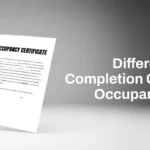
Introduction
In the fast-moving world of Indian real estate, builders face various challenges and issues in maintaining and managing their operations and processes on a regular basis. There is a daily struggle with data overload, scattered communication, and missed opportunities. A real estate CRM is an effective tool that could greatly help them in such situations.
As the market grows more competitive, a modern CRM for builders in India helps businesses to increase sales and revenue by eliminating the issues that prevent them from elevating their business performance to the next level.
Let’s look at 10 common challenges that builders can face without a CRM. Find out how a robust real estate CRM solution has the power to bring all your sales, leads, and projects together.
What are the Top 10 Pain Points of Builder Who Does Not Use a CRM
Here are the 10 major challenges builders face in the absence of a robust real estate CRM solution. In this guide we look into the heart of these challenges, offering detailed real-world examples and specific solutions designed to enable businesses to deliver top-notch customer experiences.
Disorganized Customer Data
Without a CRM, customer information is scattered across spreadsheets, emails, and even physical files. This makes it difficult to find the right details quickly, often leading to inaccurate data and missed opportunities.
What is a real estate CRM? It’s a centralized platform that keeps all your client and project information in one place, making data retrieval fast and reliable
Real-world Example: A Pune builder lost a repeat client when the team couldn’t find updated contact details buried in old spreadsheets and emails. The client’s request went unanswered for days. Frustrated, they chose a competitor who responded instantly.
Inefficient Communication
Managing communication with clients, subcontractors, and suppliers becomes a daily challenge without a central system. Important messages can be missed, leading to delays, errors, and confusion. A crm for builders in India ensures every conversation and update is tracked, so nothing falls through the cracks.
Real-world Example: A Delhi construction firm missed an important project deadline because updates between the sales and site teams were shared via WhatsApp and got buried in chat history. The client complained about repeated miscommunication, leading to a strained relationship.
Missed Sales Opportunities
Leads can be easily overlooked or forgotten, especially when managing multiple projects and a high volume of inquiries. With no automated reminders or lead tracking, follow-ups are inconsistent, resulting in lost sales. How to manage real estate leads? A CRM captures every inquiry and automates follow-ups, ensuring no opportunity is missed.
Real-world Example: A Bengaluru developer handling multiple projects forgot to follow up with a hot lead who had visited two sites. Without automated reminders, the lead booked with another builder who was more proactive with follow-ups.
Lack of Visibility
It’s hard to track project progress, lead status, or spot potential problems without a clear overview of all customer interactions. Builders struggle to see the big picture, making it tough to prioritize tasks or allocate resources effectively. Real estate CRM benefits include real-time dashboards and reports that give you instant visibility into every aspect of your business.
Real-world Example: A reputed property manager based in Hyderabad struggled to track project progress and lost sight of several pending client requests. He could discover the issues only after clients escalated, resulting in delayed handovers and negative feedback
Limited Marketing Effectiveness
Without a centralized database of customer information and preferences, targeted marketing campaigns are nearly impossible. Builders end up sending generic messages that don’t resonate, wasting time and money. A CRM enables segmentation and personalized marketing, increasing engagement and conversions.
Real-world Example: A well-established real estate agency ran a generic bulk email campaign that failed to generate leads. Without a CRM to segment and target prospects, their marketing budget was wasted on uninterested recipients.
Difficulty in Tracking ROI
Measuring the effectiveness of marketing and sales strategies becomes guesswork without a CRM to track key metrics and conversions. Builders can’t see which channels are working or where to focus their efforts. With a CRM, you get detailed analytics to track ROI and optimize your strategies.
Real-world Example: A Noida-based builder invested heavily in online ads but couldn’t identify which campaigns brought in qualified leads. Without CRM analytics, they kept spending on channels that didn’t deliver real conversions.
Poor Customer Service
Providing consistent and personalized customer service is a challenge without a unified view of each client’s history and preferences. Delays, repeated questions, and generic responses can lead to dissatisfaction and lost business. Real estate CRM benefits include automated reminders and personalized communication, helping you deliver a better customer experience.
Real-world Example: A developer received multiple complaints from buyers about slow responses from their customer service representatives. Inspite of repeated requests buyers dint get their important documents in time. Without a unified client history, service was inconsistent, and customer satisfaction dropped.
Increased Operational Costs
Manual processes and inefficiencies drive up operational costs. Builders spend more time on repetitive admin tasks, data entry, and chasing information instead of focusing on core business activities. A CRM automates workflows, reduces errors, and helps you optimize resources.
Real-world Example: A mid-sized builder in Ahmedabad spent hours every week reconciling payments and updating project statuses manually. The inefficiency led to overtime costs and frequent errors in billing.
Difficulty in Scaling the Business
As your business grows, managing more projects, clients, and leads without a CRM becomes overwhelming. Manual systems can’t keep up with increasing complexity, leading to bottlenecks and missed growth opportunities. A CRM for builders in India is designed to scale with your business, supporting expansion without chaos.
Real-World Example: A growing real estate firm in Gurgaon found it impossible to manage rising lead volumes and multiple projects with spreadsheets. As business expanded, errors and missed deals increased, stalling their growth.
Reduced Productivity
Employees waste valuable time searching for information, managing data, and handling repetitive tasks. This reduces overall productivity and slows down business growth. A CRM streamlines operations, automates routine work, and frees your team to focus on high-value activities.
Real-World Example: A Kolkata sales team spent most of their day searching for information and updating records instead of meeting clients. The lack of automation meant less time for selling and more for admin work, hurting overall productivity.
Without a robust CRM, builders and developers face ongoing challenges with scattered data, missed communications, and lost sales opportunities. Manual processes and lack of visibility make it hard to deliver consistent service and scale operations efficiently. Implementing a CRM for builders in India brings everything together. It streamlines workflows, improves follow-ups, and enables teams to manage real estate leads and projects with greater accuracy and speed.
The Role of CRM for Builders in India
In today’s competitive Indian real estate market, understanding what a real estate CRM is and how it can transform your business is vital. A CRM for builders in India is not merely a contact database. It is a powerful tool that centralizes client information, automates workflows, and streamlines communication across sales, marketing, and project teams.
Benefits of Using Real Estate CRM For Builders
Efficient Lead Management: Capture leads from multiple sources like websites, social media, and property portals automatically. This ensures no potential buyer slips through the cracks.
Automated Follow-Ups: Schedule reminders and send personalized messages to nurture leads consistently, improving conversion rates.
Centralized Data Access: All client interactions, project updates, and payment details are stored in one place, enabling your team to work collaboratively and make informed decisions.
Improved Customer Experience: With a 360-degree view of each client’s journey, you can tailor communication and provide timely updates, building trust and loyalty.
Data-Driven Insights: Real-time dashboards and reports help track sales performance, forecast demand, and optimize marketing strategies.
How to manage real estate leads effectively with a CRM:
Capture Leads Seamlessly: Integrate your CRM with all lead sources to gather inquiries automatically.
Prioritize and Score Leads: Use built-in tools to rank leads based on engagement and readiness to buy.
Automate Nurturing: Set up personalized email and SMS campaigns to keep leads engaged.
Track Progress: Monitor each lead’s journey through the sales funnel and adjust strategies accordingly.
Collaborate Efficiently: Share lead information across teams to ensure timely responses and smooth handovers.
How a CRM Solves These Pain Points
A CRM for builders in India is the answer to the chaos that comes with scattered data, missed follow-ups, and inconsistent customer experiences. What is a real estate CRM? It’s a central platform that brings all your lead, client, and project information together, making it accessible and actionable for your entire team.
Centralized Data and Automated Workflows
Consolidated Information: A CRM acts as a single source of truth for all customer data, including leads, contacts, property details, and communication history. It helps you keep track of all the important data.
Improved Accessibility: Everyone on your team can access the same up-to-date information, eliminate silos and ensure seamless collaboration.
Data-Driven Insights: CRMs analyze this centralized data to give you valuable insights into customer behavior, campaign performance, and sales trends, helping you make smarter decisions.
Automated workflows are another major advantage. CRMs automatically capture leads from all sources, including websites, social media, and property portals. In the next step it assigns them for follow-up, so no inquiry is missed. Automated reminders and task assignments keep your team on track, while integrated email and WhatsApp features ensure every interaction is logged and easy to find.
Real Estate CRM Benefits for Builders in India
Faster Response Times: Quick access to information and automated workflows helps you respond to inquiries faster, boosting customer satisfaction.
Improved Sales Efficiency: Streamlined processes and real-time insights help your sales team focus on qualified leads, increasing conversion rates.
Enhanced Customer Relationships: With a complete view of every client, you can personalize communication and deliver prompt service, building loyalty and repeat business.
Better Marketing Campaigns: CRMs track campaign performance and customer preferences, facilitating targeted, effective marketing and optimized spending.
Efficient Broker Management: Dedicated portals make it easy to track broker leads, manage commissions, and analyze performance.
Reduced Administrative Burden: Automation of repetitive tasks frees up your staff for more strategic work, improving productivity.
Scalability: As your business grows, your CRM grows with you, handling more data, leads, and projects without missing a beat.
If you’re wondering how to manage real estate leads effectively, a CRM is the answer. It centralizes data, automates follow-ups, and gives you the tools to track every lead from first inquiry to final sale.
Best Practices of How to Manage Real Estate Leads with a CRM
Managing real estate leads effectively is essential for builders who want to increase their sales and deliver a seamless customer experience. A real estate CRM is a platform designed to centralize, automate, and optimize every step of your lead management process.
Here’s how to get the most out of a CRM for builders in India, using proven best practices:
Lead Capture
Automated Capture: Integrate your CRM with your website, online portals and social media so every inquiry is automatically captured.
Centralized System: Store all lead information in a single, accessible CRM database, ensuring no opportunity is lost and your team always works with the latest data.
Lead Scoring
Prioritize High-Potential Leads: Use lead scoring tools to rank leads based on engagement, budget, and readiness to buy. This allows your sales team to focus on the prospects most likely to convert.
Scoring Factors: Consider website activity, email interactions, and property interests to assign scores and segment leads for targeted follow-up.
Lead Nurturing
Personalized Communication: Segment your leads and send tailored messages via email, SMS, or WhatsApp, using your CRM’s automation features.
Drip Campaigns: Set up automated drip campaigns to deliver relevant property updates, market insights, and valuable content at regular intervals, keeping leads engaged.
Consistent Communication: Schedule timely follow-ups based on lead behavior, ensuring no lead is neglected during the sales process.
Follow-Up Automation
Automated Reminders: Use your CRM to set reminders for calls, meetings, and follow-ups, so your team never misses a touchpoint.
Automated Email/SMS: Trigger personalized emails and SMS messages based on lead activity, property preferences, or important milestones.
Track and Analyze: Leverage CRM analytics to monitor lead interactions, measure campaign effectiveness, and refine your strategies for better results.
Integrate Your CRM: Connect your CRM with your website, email marketing, and other business tools for a seamless workflow.
Train Your Team: Ensure everyone understands the CRM’s features and the importance of consistent lead management.
Regularly Update Data: Keep your CRM database clean and accurate by updating lead information and activity logs frequently.
Build Relationships: Use automation to support, not replace, personal connections. Building relationships is the key to long-term success.
Conclusion
CRM systems have become indispensable for real estate professionals who want to manage and nurture leads effectively. By providing a centralized platform, CRMs ensure that every opportunity is tracked, segmented, and followed up with precision, reducing the risk of missed deals and disorganized data. Automation features streamline follow-ups and personalized messaging, keeping leads engaged and freeing up valuable time for your team. With powerful analytics, CRMs offer actionable insights into lead interactions and campaign performance, allowing you to refine your strategies and boost conversion rates. In a market where speed, accuracy, and relationship-building matter, adopting a CRM system is not just a technological upgrade, it’s a strategic advantage that drives better sales, stronger client relationships, and long-term business growth.
Find out how HomeLead, a leading CRM for builders in India, can centralize your data, automate your workflows, and help you manage leads effortlessly. Experience the full spectrum of real estate CRM benefits with HomeLead’s intuitive platform designed specifically for builders and developers. Don’t let opportunities slip away. Get a free demo of HomeLead today and take the first step toward smarter, faster sales.




